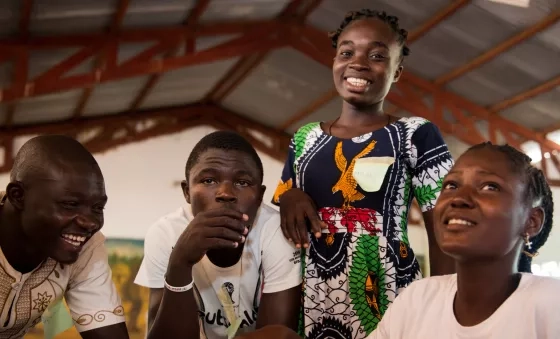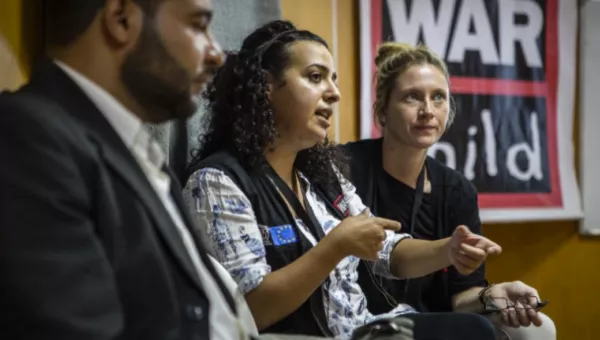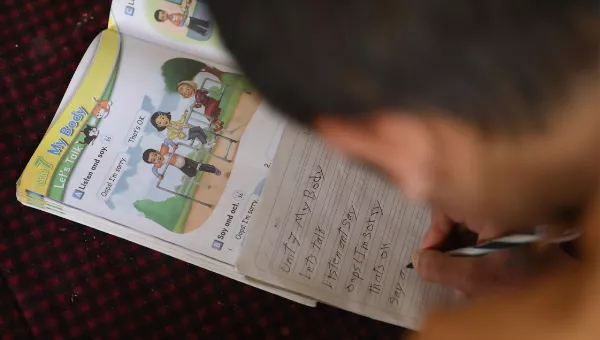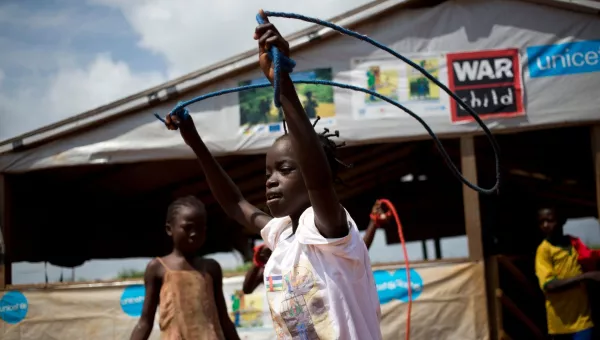Globally young people make up the fastest growing age category in the world.
And it has been estimated that up to one in four have been affected by conflict in some way. Despite being the biggest age group in many conflict areas, and the ones who often suffer the worst consequences and long-term impacts of war, they are underrepresented in decision-making and their voices are often overlooked.
Every day, however, young people in conflict zones are already doing things to try and improve their and other children’s lives. They are active in their communities, and they have the energy, ideas, and solutions to bring about real change and peace. We believe these efforts and actions should be acknowledged, appreciated, and supported because that’s where the best hope for a new future lies.
We think young people should be their own advocates and their voices are not just heard but really listened to. After all, they know what it is like to be a child affected by conflict better than anyone and they have a right to participate in decisions concerning them. That’s why at War Child we support youth-led campaigning and young people’s participation in our international advocacy.
Youth-led campaigns
War Child has developed its own way to support young people to raise issues and campaign for change.
In 2016 we decided to dedicate time to finding a way to help raise young people in the conflict areas where we work to raise their concerns and to support them in taking action safely. To do this we designed and tested a new youth-led advocacy programme model called ‘VoiceMore’ in the Central African Republic, the Democratic Republic of Congo, Uganda and Jordan.
Hear more about the amazing things young people have been doing as part of VoiceMore.
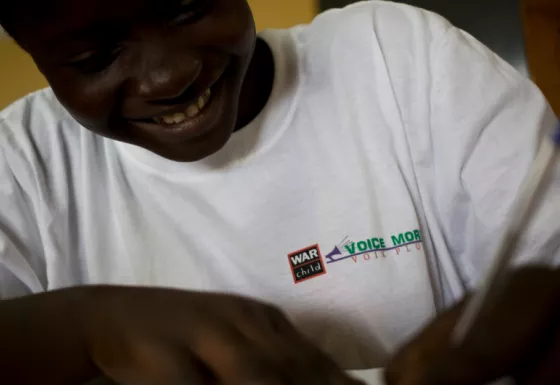
Global youth representation
We are committed to supporting young people to share their perspectives, ideas, and solutions directly to those with decision-making power.
We regularly support young people from our VoiceMore groups and other youth programmes to consult with decision-makers, present at events and collaborate with us in our campaigns. Young people have spoken at international summits, led sessions at high-level conferences and conducted and presented their own research.
Below are just a few examples of this work:
Advocacy against the recruitment of children into armed groups
War Child supports girls and boys who have left armed groups. We offer programmes and advocate on issues impacting them to try and draw more attention to their needs. In 2019 we partnered with the United Nations University for a series of consultations with young people affected by armed groups in their community.
Participants took part in two-day workshops sharing their perspectives on existing reintegration processes and what it means to truly leave an armed group behind. As part of the workshops, they designed a Snakes & Ladders board game where the snakes each represented a barrier to reintegration and a ladder something that made it easier. They also discussed and presented their feedback in a video:
Protecting children who defend their rights
Being an activist can be dangerous in many parts of the world but despite the fact that children are taking it upon themselves to protest and highlight injustices, there hasn't been much consideration to what kind of special protection or support they might need.
To help draw attention to this issue, the Committee of the Rights of the Child decided to host a 'Day of General Discussion' at the United Nations in Geneva. Two VoiceMore members, Dieudonne* from the Central African Republic and Haya* from the Jordan group, presented the work their groups had been doing. The Day of General Discussion was the first-time children had ever been invited to shape and participate in this type of UN meeting. Following its success, the Committee have now committed to ensuring children's participation in future events about the Convention of the Rights of the Child.
Collaborating with UNICEF on the 30th Anniversary of Children’s Rights
2019 marked the 30th anniversary of the signing of the Convention of the Rights of the Child. War Child collaborated with UNICEF head office in Geneva to organise workshops with young people in the Central African Republic to discuss what they think of children's rights and also what they think is important about participation rights in particular.
The videos were shown at the UNICEF Global Protection Cluster meeting; an annual meeting attended by lots of international charities and organisations to discuss what more can be done to help protect children. Attendees were asked to participate in discussions around the questions and points the young people wanted to raise.
Education in Emergencies
Getting an education in any place affected by conflict is hard. Schools are often damaged, destroyed, attacked, or occupied by armed groups. Children are forced out of school and many never get a chance to return and complete even early stages of their education. In 2019 a special series of events was organised by UNICEF at the UN, exploring education in emergencies. War Child supported a youth activist from the Central African Republic to present his work to combat abuse and corruption in schools. Watch his inspiring speech below:

